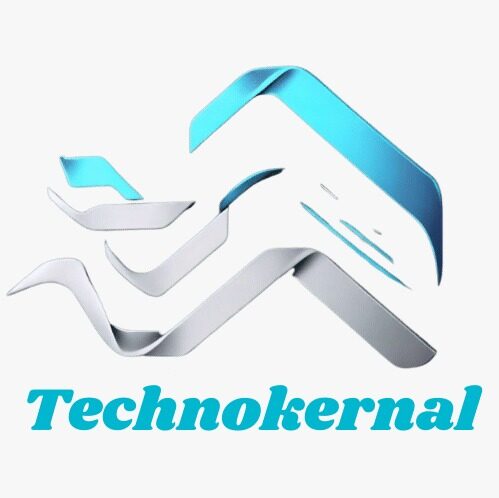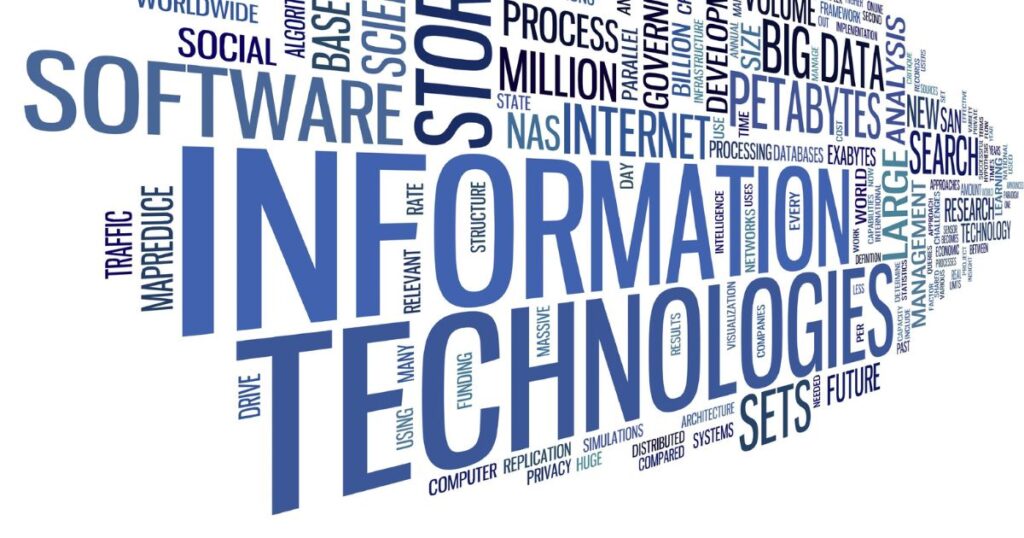What is information technology (IT)?
Information technology (IT) uses computers, software, and telecommunications equipment to store, retrieve, transmit, and manipulate data. It encompasses various technologies and processes that enable information creation, management, and distribution. Information technology has become an integral part of virtually every industry in the modern digital age, revolutionizing how we live, work, and communicate.
At its core, IT aims to facilitate the efficient and effective use of information by leveraging various tools and systems. These tools and systems help store and organize data and process, analyze, and present it meaningfully. Information technology has become a driving force behind innovation, productivity, and global connectivity.
Everyday examples of IT

Information technology is deeply embedded in our daily lives, often in ways we may not even realize. Here are some common examples of IT in action:
- Cloud computing services: Services like iCloud, Google Drive, and Dropbox allow users to store and access their files from anywhere, leveraging the power of cloud computing.
- Network security: Virtual Private Networks (VPNs), firewalls, and antivirus software are essential IT tools that protect our devices and networks from cyber threats.
- Remote device troubleshooting: IT support professionals can access and troubleshoot devices remotely, providing efficient solutions to software or hardware issues.
- Online banking and e-commerce: The ability to conduct financial transactions and make purchases online is made possible by IT systems that securely handle sensitive data.
- Social media platforms: Platforms like Facebook, Twitter, and Instagram rely on IT infrastructure to facilitate global communication and information sharing.
- Streaming services: Popular services like Netflix, Hulu, and Spotify leverage IT technologies to deliver on-demand video and audio content to users worldwide.
- GPS navigation: Global Positioning System (GPS) technology and navigation apps like Google Maps and Waze rely on IT systems to provide real-time location tracking and routing information.
- Smart home devices: Internet-connected devices like smart thermostats, security cameras, and virtual assistants (e.g., Amazon Alexa, Google Home) are powered by IT systems and the Internet of Things (IoT) technologies.
- Online learning platforms: Coursera, edX, and Khan Academy use IT solutions to deliver educational content and facilitate remote learning experiences.
- Teleconferencing and remote work tools: Applications like Zoom, Microsoft Teams, and Slack enable virtual meetings, collaboration, and remote work, thanks to IT infrastructure and communication technologies.
These examples highlight the pervasive nature of information technology in our daily lives, streamlining various processes, enhancing productivity, and enabling seamless access to information and services.
Computer science
In contrast, computer science is a broader field encompassing the theoretical foundations, design, and development of computer systems, software, and algorithms. Computer science professionals often focus on the following:
- Software engineering: Designing, developing, and testing software applications using various programming languages and methodologies.
- Algorithm design and analysis: Creating efficient algorithms to solve complex computational problems and analyzing their performance and complexity.
- Computer architecture: Studying and designing computer systems’ hardware components and organization, from microprocessors to supercomputers.
- Artificial intelligence and machine learning: Developing intelligent systems and algorithms capable of learning, reasoning, and decision-making.
- Theoretical computer science: Exploring the mathematical and logical foundations of computation, including computability theory, automata theory, and programming language theory.
While there is some overlap between the two fields, information technology focuses more on the practical application and management of existing technologies. At the same time, computer science delves deeper into the theoretical and design aspects of computing systems and software.
Careers in information technology
The information technology field offers various career paths and job opportunities, catering to diverse interests and skill sets. Some of the standard IT careers include:
- IT support specialist: Responsible for providing technical assistance, troubleshooting issues, and ensuring the smooth operation of computer systems and networks.
- Network administrator: Designs, configures, and maintains computer networks, ensuring secure and efficient data communication.
- Database administrator: Manages and maintains database systems, ensuring data integrity, security, and accessibility.
- Cybersecurity analyst: Protects computer systems and networks from cyber threats, such as hacking attempts, malware, and data breaches.
- Software developer: Designs, develops, and maintains software applications using various programming languages and development methodologies.
- IT project manager: Oversees and coordinates IT projects, ensuring timely delivery, resource allocation, and adherence to project goals and budgets.
- Cloud architect: Designs and implements cloud computing solutions, leveraging cloud platforms and services to meet organizational needs.
- Data analyst: Collects, processes, and analyzes data to uncover insights and trends, supporting data-driven decision-making processes.
IT skills and certifications

To succeed in the information technology industry, professionals typically need to possess technical and soft skills. Some essential IT skills include:
- Programming and coding: Proficiency in programming languages like Python, Java, and C++ or web development languages like HTML, CSS, and JavaScript.
- Networking and system administration: Understanding network protocols, configurations, and troubleshooting techniques.
- Database management: Knowledge of database systems, query languages (e.g., SQL), and data modeling.
- Cybersecurity: Familiarity with security principles, risk assessment, and cybersecurity tools and practices.
- Cloud computing: Experience with cloud platforms, services, and architectures.
- Problem-solving and analytical thinking: Ability to analyze complex problems, identify root causes, and develop practical solutions.
- Communication and collaboration: Strong interpersonal skills for effective teamwork and stakeholder communication.
Additionally, many IT professionals pursue industry-recognized certifications to validate their expertise and stay up-to-date with the latest technologies and best practices. Some popular IT certifications include:
- CompTIA A+, Network+, Security+
- Cisco Certified Network Associate (CCNA)
- Microsoft Certified Solutions Expert (MCSE)
- AWS Certified Solutions Architect
- Certified Information Systems Security Professional (CISSP)
- Project Management Professional (PMP)
Read More Posts
Rzinho: Unveiling The Intersection Of Culture And Technology
FAQs
What is information technology, in simple words?
Information technology (IT) uses computers, software, and telecommunications equipment to store, retrieve, process, and transmit data and information.
What does an IT person do?
An IT person manages, maintains, and troubleshoots computer systems, networks, databases, and other technologies. Their duties may include installation, configuration, security, backup, and user support.
What is the purpose of information technology?
The primary purpose of information technology is to enable efficient data processing, storage, and communication to support various organizational and individual needs, such as automation, decision-making, and knowledge sharing.
What best defines information technology?
Information technology is best defined as the study, development, implementation, support, and management of computer-based information systems, including software applications and computer hardware components.
Conclusion
Information technology is a dynamic and ever-evolving field crucial in our increasingly digital world. IT has become indispensable to modern society, from enabling global communication and data exchange to driving innovation and efficiency across industries.
As technology advances, the demand for skilled IT professionals will only grow. Whether you’re interested in pursuing a career in IT support, cybersecurity, software development, or any other IT specialization, there are ample opportunities for personal and professional growth.
By staying up-to-date with the latest trends, acquiring relevant skills, and embracing a lifelong learning mindset, IT professionals can navigate the ever-changing technological landscape and contribute to developing innovative solutions that shape our future.
Remember, information technology is not just about computers and code – it’s about leveraging technology to solve real-world problems, streamline processes, and enhance our lives and work.







